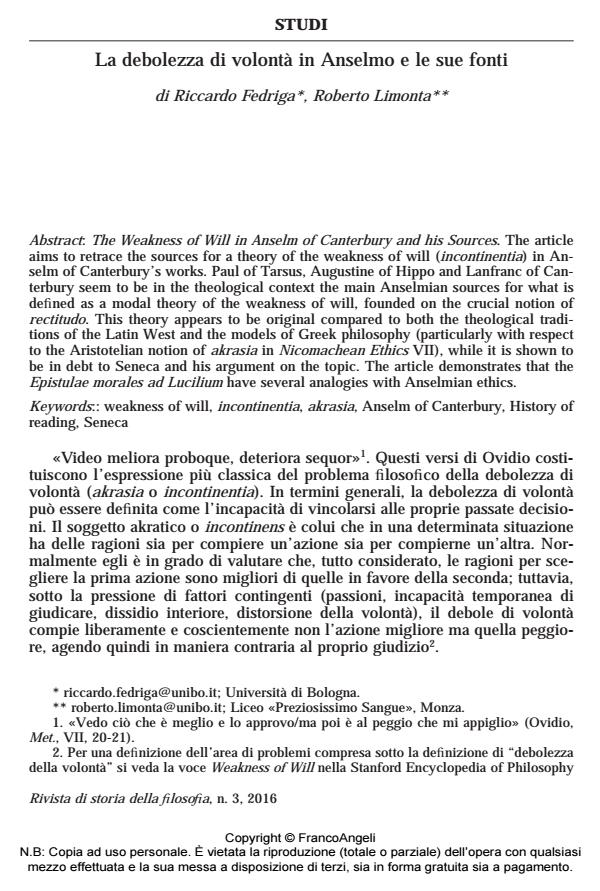The Weakness of Will in Anselm of Canterbury and his Sources
Journal title RIVISTA DI STORIA DELLA FILOSOFIA
Author/s Riccardo Fedriga, Roberto Limonta
Publishing Year 2016 Issue 2016/3
Language Italian Pages 30 P. 357-386 File size 112 KB
DOI 10.3280/SF2016-003001
DOI is like a bar code for intellectual property: to have more infomation
click here
Below, you can see the article first page
If you want to buy this article in PDF format, you can do it, following the instructions to buy download credits

FrancoAngeli is member of Publishers International Linking Association, Inc (PILA), a not-for-profit association which run the CrossRef service enabling links to and from online scholarly content.
The article aims to retrace the sources for a theory of the weakness of will (incontinentia) in Anselm of Canterbury’s works. Paul of Tarsus, Augustine of Hippo and Lanfranc of Canterbury seem to be in the theological context the main Anselmian sources for what is defined as a modal theory of the weakness of will, founded on the crucial notion of rectitudo. This theory appears to be original compared to both the theological traditions of the Latin West and the models of Greek philosophy (particularly with respect to the Aristotelian notion of akrasia in Nicomachean Ethics VII), while it is shown to be in debt to Seneca and his argument on the topic. The article demonstrates that the Epistulae morales ad Lucilium have several analogies with Anselmian ethics.
Keywords: Weakness of will, incontinentia, akrasia, Anselm of Canterbury, History of reading, Seneca
Riccardo Fedriga, Roberto Limonta, La debolezza di volontà in Anselmo e le sue fonti in "RIVISTA DI STORIA DELLA FILOSOFIA" 3/2016, pp 357-386, DOI: 10.3280/SF2016-003001